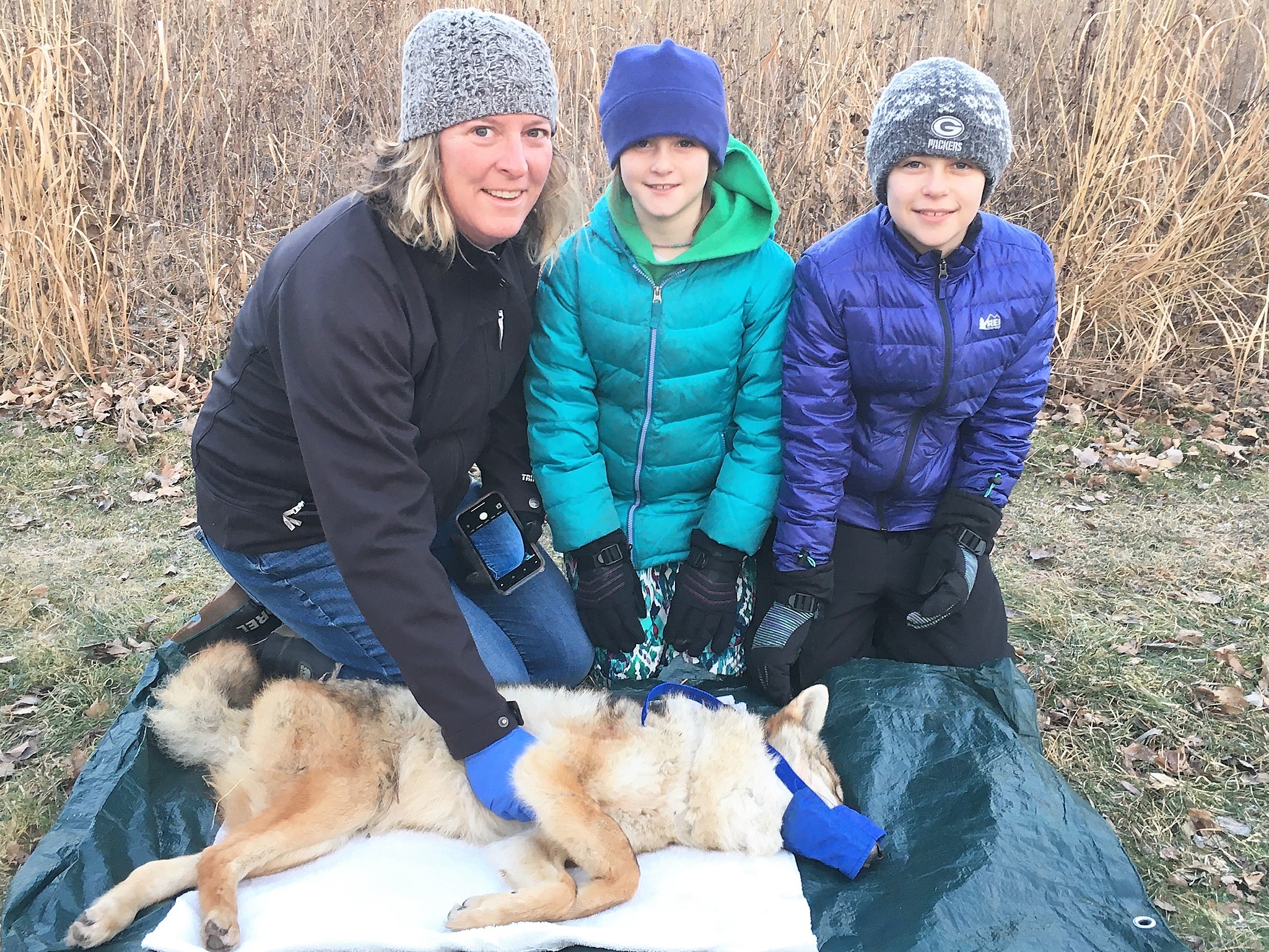Tricia Fry
PhD Student

Biography
I am a PhD student in the School of Veterinary Medicine in the Comparative Biomedical Science Program in Tony Goldberg’s lab. My work uses data collected from the southern Beaufort Sea subpopulation of polar bears to help shift the paradigm of wildlife health from disease centric to health driven, by providing a framework that can be used to better monitor and respond to changes in wildlife health. The goal of my work is to define polar bear health, using the influences and synergy of biological, social and ecological conditions experienced by southern Beaufort Sea polar bears during the last thirty-five years. I am assessing how climate change directly and indirectly influences polar bear health. First, by defining baseline conditions of health including physiologic reference intervals and using next generation sequencing to identify commensal viromes of polar bears. Establishing parameters of normality within health allows me to evaluate the influence of climate change on the physiologic and biologic conditions of polar bears through changes in these biomarkers. I am also looking at how changes in polar bear behavior, specifically summer on-shore behavior, has the potential to increase the risk of polar bears to novel pathogens though contact with native and domestic carnivores. Ultimately, my research aims to define the most useful biomarkers of polar bear health that considers both biotic and abiotic factors and their interactions in context of the biological, social and ecological systems. 
Contact Information
Email: tfry@wisc.edu
Education
MS in Wildlife Ecology from the University of Wisconsin – Madison 2004
BS in zoology from Colorado State University 1997
Publications
Fry, Tricia L.*, Friedrichs KR, Atwood TC, Duncan C, Simac K, Goldberg T (2019) Reference intervals for blood-based biochemical analytes of southern Beaufort Sea polar bears. Conserv Physiol 7(1). doi:10.1093/conphys/coz040
Maki, Joanne, T.L. Fry*, J.C. Hurley, L.A. Miller. 2015. Adjuvanted rabies vaccine with improved viscosity profile. US PATENT No. 9216213 B2. Filed April 20, 2012 and issued December 22, 2015.
Malmlov, Ashley, S. Breck, T.L. Fry*, C. Duncan. 2014. Serologic survey for cross-species pathgens in urban coyotes (Canis latrans) Colorado, USA. Journal of Wildlife Diseases. 50(4):946-950.
Fry, Tricia L.*, K.K. VanDalen, C. Duncan, K. VerCauteren. 2013. The safety of ONRAB® in select non-target wildlife. Vaccine. 31(37):3839-3842.
Dirsmith, Katherine, K. VanDalen, T.L. Fry*, B. Charles, K. Vercauteren, and C.Duncan. 2013. Leptospirosis in fox squirrels of Larimer County, Colorado, USA. Journal of Wildlife Diseases.49:641-645.
Fry, Tricia L.*, K. K. VanDalen, S.A. Shriner, S.M. Moore, C.A. Hanlon and K. VerCauteren. 2013 Humoral immune response to oral rabies vaccination in raccoon kits: Problems and implications. Vaccine. 31(26):2811-2815.
Fry, Tricia L.*, K. K. VanDalen, J. Hurley, and P. Nash.2012. Mucosal adjuvants to improve wildlife rabies vaccination. Journal of Wildlife Diseases. 48(4): 1042-1046.
Atwood, Todd C., T.L. Fry*, and B.R. Leland. 2011. Partitioning of anthropogenic watering sites by desert carnivores. Journal of Wildlife Management.75 (7): 1609-1615.
Fry, Tricia L.*, T.C. Atwood, and M. R. Dunbar. 2010. Use of Rhodamine B as a biomarker in raccoons. Human Wildlife Interactions. 4(2):275-282
Fry, Tricia L.* and M. R. Dunbar. 2007. A review and update of biomarkers used for wildlife damage and disease management. Proceedings of the 12th Wildlife Damage Management Conference. D.L. Nolte, W. M. Arjo, D. H. Stalman, Eds. 12: 217- 222.
